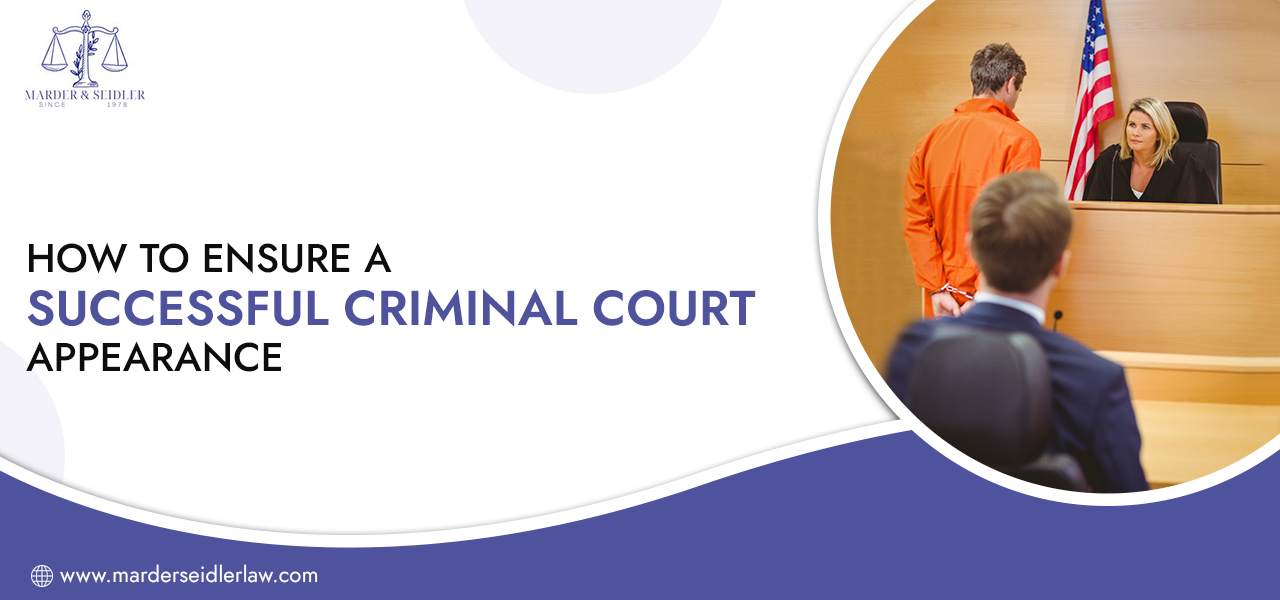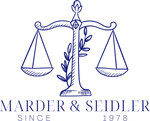How to Ensure a Successful Criminal Court Appearance

Are you a first-timer who is dealing with the complex legal system owing to a criminal court appearance? It can be an utterly stressful and nerve-wracking experience, especially if it’s your first time and you’re unaware of the nitty-gritty of the legal system. However, getting a hang of what needs to be done and how to handle it effectively can make the process much smoother. In this informative article, we have made an attempt to walk you through some essential tips to ensure a successful criminal court appearance ticket experience. These tips will help you navigate the complexities of the legal system with confidence.
Understanding a Criminal Court Appearance
A criminal court appearance is a notice issued by law enforcement, requiring you to appear in court at a specified date and time. It’s usually given for minor offenses, such as traffic violations, disorderly conduct, or other non-violent crimes. However, don’t be misled by the term “minor”—ignoring or mishandling a criminal court appearance can have serious consequences, including fines, additional charges, or even an arrest warrant.
1. Take the Criminal Court Ticket Seriously
One of the most crucial steps you can take is to treat this scenario with the seriousness it deserves. It’s easy to dismiss it as a minor inconvenience, but failing to appear in court on the scheduled date can result in severe penalties. These can range from hefty fines to the issuance of a bench warrant, which means law enforcement will be actively looking to arrest you.
Ignoring the ticket won’t make it go away; it will only escalate the situation. So, the first and most important tip is to mark the date on your calendar and plan to attend court as required.
2. Understand the Charges Against You
Before your court date, take the time to fully understand the charges listed on your criminal court appearance ticket. The ticket will generally indicate the specific offense you’re being accused of, but the legal terminology might be confusing. Don’t hesitate to seek clarification from an experienced criminal attorney if needed, who can explain the charges in layman’s terms. Understanding what you’re being accused of is crucial in planning your defense and knowing what to expect during your court appearance.
3. Consult with an Attorney

Even if the charges seem minor, consulting with an attorney can be invaluable. A legal professional can guide you on the best course of action, help you understand your rights, and even represent you in court if necessary. They can also negotiate on your behalf, potentially reducing the charges or penalties you may face. If you’re unable to afford a private attorney, you may be eligible for a public defender.
4. Prepare Your Defense
Once you understand the charges against you and have consulted with an attorney, it’s time to prepare your defense. Your attorney will help you gather any evidence or documentation that could support your case. This could include witness statements, video footage, or any other relevant information that could demonstrate your innocence or mitigate the charges against you.
In some cases, your attorney might suggest pleading guilty to a lesser charge in exchange for a reduced sentence. This is something to consider carefully, and your lawyer will guide you on the best approach based on the specifics of your case.
5. Dress Appropriately for Court
First impressions matter, and the way you present yourself in court can impact the judge’s perception of you. Dressing appropriately for your criminal court appearance ticket hearing is essential. Aim for business attire—think of it as dressing for a job interview. Men should consider wearing a suit or dress pants with a button-down shirt and tie, while women should opt for a modest dress, skirt, or pantsuit.
Avoid wearing anything too casual, such as jeans, t-shirts, or sneakers, and steer clear of flashy or revealing clothing. Your goal is to appear respectful and take the proceedings seriously.
6. Arrive Early

Punctuality is key when it comes to court appearances. Arriving late can reflect poorly on you and might even result in a default judgment against you. Plan to arrive at least 30 minutes early to allow time for any unexpected delays. Find the correct courtroom, and compose yourself before the proceedings begin. It’s also a good opportunity to review your case with your attorney if they are present.
7. Be Respectful and Professional
Courtrooms are formal settings, and it’s essential to conduct yourself with the utmost respect and professionalism. This means addressing the judge as “Your Honor,” speaking clearly, and refraining from interrupting others while they are speaking. Observe others in the courtroom before your case is called. Pay attention to how attorneys and other individuals interact with the judge and court staff, and follow their lead.
8. Listen Carefully and Follow Instructions
During your criminal court appearance ticket hearing, it’s crucial to listen carefully to everything that is said. The judge or your attorney may provide important instructions or ask you questions that require precise answers. Don’t be afraid to ask for clarification wherever required. It’s better to ask questions than to misunderstand something that could affect your case. Following instructions carefully will show the court that you are taking the matter seriously and are committed to resolving the issue.
Final Thoughts
By following these tips, you can navigate the criminal court process with greater confidence and increase your chances of a favorable outcome. Remember, the key to a successful court appearance is preparation, respect, and seeking the appropriate legal advice from a criminal attorney, who can help you with the legal complexities. Our expert team of criminal lawyers at Marder & Seidler are committed to offer you the support you need and the justice you deserve. Call 847-985-6767!
